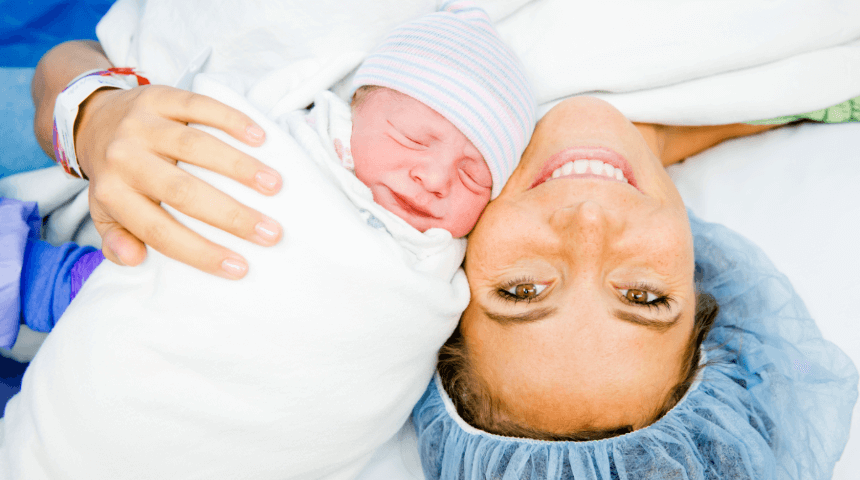If you’re pregnant, you’re already making sacrifices when it comes to caffeine, alcohol and certain foods. So the last thing you want to do is give up air and cruise travel, too. Luckily, you don’t have to. With the right planning, your pregnancy can still include flights and cruises.
First Trimester
At this stage of your pregnancy, travel is generally considered safe. But this is also the trimester when morning sickness, nausea and fatigue are most common, and these issues may factor into travel plans. The first trimester brings the greatest risk of miscarriage, but flying does not exacerbate that risk.
Second Trimester
This is the window when travel is best. Your pregnancy is stable, but your due date is still far enough away. Most women are past the morning sickness stage and have enough energy to enjoy a vacation or complete work travel easily.
Third Trimester
It’s possible that your baby can be born at any point in the third trimester. Most women don’t want to give birth in a strange place with a doctor and staff that aren’t part of their birth plan. At this stage of the pregnancy, you’re at greater risk of complications. Day trips, such as driving an hour from home, shouldn’t be a problem, but you might want to avoid longer travel. Staying close to home is best.
Tips To Make Air Travel More Comfortable
In addition to the general discomfort that you may endure when sitting in an airline seat for too long, flying is slightly harder on a pregnant body. Pregnant women have a greater risk of blood clots when flying. With a few precautions, you can remain safe and comfortable during your flight.
- Avoid sitting still for too long. Stand up every hour, stretch your legs and walk the aisles as much as you can.
- Pick an aisle seat so that you don’t have to cross over anyone to move around.
- Wear compression socks to help prevent blood clots and deep vein thrombosis.
- Drink lots of fluids to stay hydrated; dehydration can cause problems.
- If you have back pain, make sure you're sitting in a way that your back is supported.
- Use the bathroom frequently to avoid a UTI.
You’ll also want to bring an extra supply of any medications you take. Enough to last through the trip and beyond, just in case anything happens, and you need to stay longer. You should also travel with a copy of your medical record in case you need hospital care for any reason, or if labor begins early.
Airline and Cruise Ship Restrictions
Most airlines and cruise lines have policies limiting when pregnant women can fly or cruise. Limitations vary by airline but are typically imposed starting with weeks 28 to 35 and beyond. Check with the airline or cruise line. Some require a doctor’s note and some don’t allow travel at all. Some cruise lines will deny boarding to a woman who is at or past week 32 of her pregnancy.
These restrictions are to minimize risk of in‑flight and mid-cruise labor, especially on long-haul or international routes. It would be challenging to provide proper care should labor begin mid-flight. With flying, the restrictions also help limit pregnant women’s risk of blood clots and other complications.
International Travel
No matter what stage of pregnancy you’re in, international travel may pose a risk. The key is researching which medical threats the destination might pose. You’ll also want to investigate the availability and quality of hospitals if you need one. The closer you are to your due date, the riskier international travel becomes.
- Check to see which vaccines the country recommends. Then consult with your healthcare provider to see if those vaccines are safe. Some are not recommended for pregnant women.
- Do not travel to any regions with travel advisories for Zika virus, which is linked to birth defects.
- Avoid countries with malaria warnings. Anti-malaria medicines are known to cause pregnancy risks.
- Check to see if the country is having any other health or viral outbreaks, and if so, avoid those destinations.
- Research to see if the destination has drinking water advisories. If so, avoid these places, or ensure you will have a safe supply of drinking water.
- Get travel insurance. This is recommended for all travelers, but especially for pregnant women. If you have to cancel the trip, or if you're away from home and need to be evacuated, that will be covered.
Every pregnancy is unique. If yours is high risk, travel isn’t recommended at all. If you have any questions about travel or anything else about your pregnancy, reach out to your OB-GYN or healthcare provider. They’re there to help you have the safest and most comfortable pregnancy possible.
This content is not AI generated.




